Alabama voter registration climbs, but turnout lags rest of nation
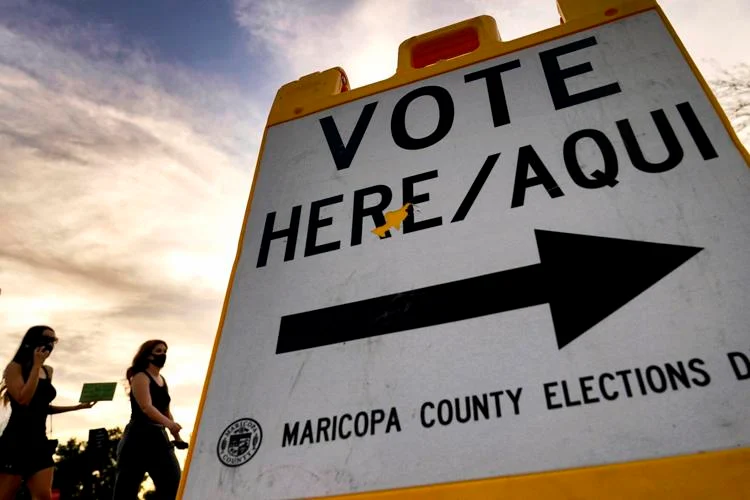
by Ralph Chapoco, Alabama Reflector September 15, 2023 This article is part of U.S. Democracy Day, a nationwide collaborative on Sept. 15, the International Day of Democracy, in which news organizations cover how democracy works and the threats it faces. To learn more, visit usdemocracyday.org. While Alabama has enjoyed record numbers in terms of people registering to vote, voter rights groups point to troubling signs despite those figures for voters gaining access to the ballot box to exercise their constitutional right as citizens. Alabama Secretary of State Wes Allen and his predecessor, John Merrill, have pointed to a 32% increase in voter registration in the last decade as a sign of greater interest in the process. But election turnout has lagged other states, even in presidential election years. More than 2.3 million Alabamians cast ballots in the 2020 presidential election. In terms of volume, that was a record, but it only represented 62% of Alabama voters casting votes, one of the lowest presidential turnouts in 30 years. “One of the things that we have seen, we are still seeing, is low turnout,” said Kathy Jones, president of the League of Women Voters of Alabama. “Presidential elections get high turnout, but in the elections at the local level, and during the midterms, you see pretty sad turnout. That is not good for democracy.” The reasons for the disparities have to do with culture, state laws that impede access to the ballot, and a lack of competitive elections. Allen and Merrill have turned to the public airwaves to claim credit for the number of active, and registered voters in Alabama. The state has steadily increased that number, going from about 2.8 million about a decade ago to roughly 3.3 million at the end of 2022. Through the end of August, the state’s voter rolls increased by an additional 30,000 people. Richard Fording, a professor of political science at the University of Alabama, said “the numbers aren’t bad.” But relatively few Alabamians exercise their right to vote, a continuation of a longstanding problem that has plagued the state for decades. According to data compiled by Michael McDonald, a political science professor at the University of Florida, only 37.3% of eligible voters turned out for the November 2022 elections, the fifth-worst in the United States. Mississippi, another southern state, fared the worst at 32.5%. Tennessee, West Virginia, and Indiana were the only other states with lower turnout than Alabama. The issue starts with the state’s history. “Alabama was classified as a state with a traditionalistic political culture,” Fording said. “That means a few different things, but with respect to the orientation of government participation, it is an elitist orientation.” That culture emerged from a backdrop of slavery, segregation, and disenfranchisement of large swathes of voters, mostly Blacks but also poor whites. Elites in the state maintained the status quo through literacy tests, poll taxes, and other discriminatory voting practices. Though those have been outlawed, their impact on the state’s political culture remains. “When there is a system that is the status quo, those who benefit from it want to rationalize that system, as being just,” Fording said. “And if they have the power to do that through various channels of socialization like the education system, then that is likely to become embedded somewhat permanently in the culture.” Several crosscurrents have taken shape that stem from that history that have served to depress voter turnout. “We have started out way behind,” Fording said. “And so, it is just harder to finish first when starting last.” Foregone conclusions The low turnout is not tied to a party. In the 2006 elections, when Democrats controlled the state Legislature, voter participation was 36%. Some demographic trends may play a role. Education tends to correlate with voter participation, and Alabama has a smaller percentage of college graduates than the nation as a whole. Party strength can also influence turnout. “In a large sense, there is not a lot of democracy because it is a foregone conclusion that most of the outcomes are going to be Republican,” said Thomas Shaw, an associate professor in the Department of Political Science and Criminal Justice at the University of South Alabama. The state is solid red, with the Republicans holding the governor’s office, all statewide elected positions, and the state Legislature. Democrats, once the dominant party in the state, have held onto power in the Black Belt and the state’s cities. But the state has not voted for a Democratic presidential nominee since 1976, and Democrats have won only one statewide election (the 2017 special election for U.S. Senate) since 2010. That can depress turnout. It also makes candidate recruitment difficult. The Democrats’ statewide candidates in 2022 were mostly inexperienced and underfunded. That depressed turnout to the point that normally safe Democratic legislative districts saw closer-than-expected races. “The people they put on the ballot in 2022 were no-name nobodies who got some of the least amount of support in the entire history of Democratic politics in Alabama,” said David Hughes, an associate professor of political science at Auburn University Montgomery. The state party is embroiled in a fight over its bylaws and leadership. Leaders of the party voted in May to disband three diversity caucuses and adopt new bylaws, replacing a set adopted in 2019 amid a Democratic National Committee (DNC) investigation. The DNC is investigating the May meeting. “I don’t think anybody would look at the state Democratic Party and say that it is functional,” Hughes said. All of that weighs on turnout, said Shaw. “If it is a presidential election, and you are a Democrat in Alabama, you know there is no chance that your candidate is going to get elected in Alabama; how does that make you feel about going to the polls,” he said. “It makes you feel like, ‘Why should I bother?’” Ballot access Legislators in recent years have also taken to making voting more difficult. Alabama does not have early voting or no-excuse absentee voting. The
Democratic leadership address the Supreme Court rejection of Alabama’s congressional redistricting
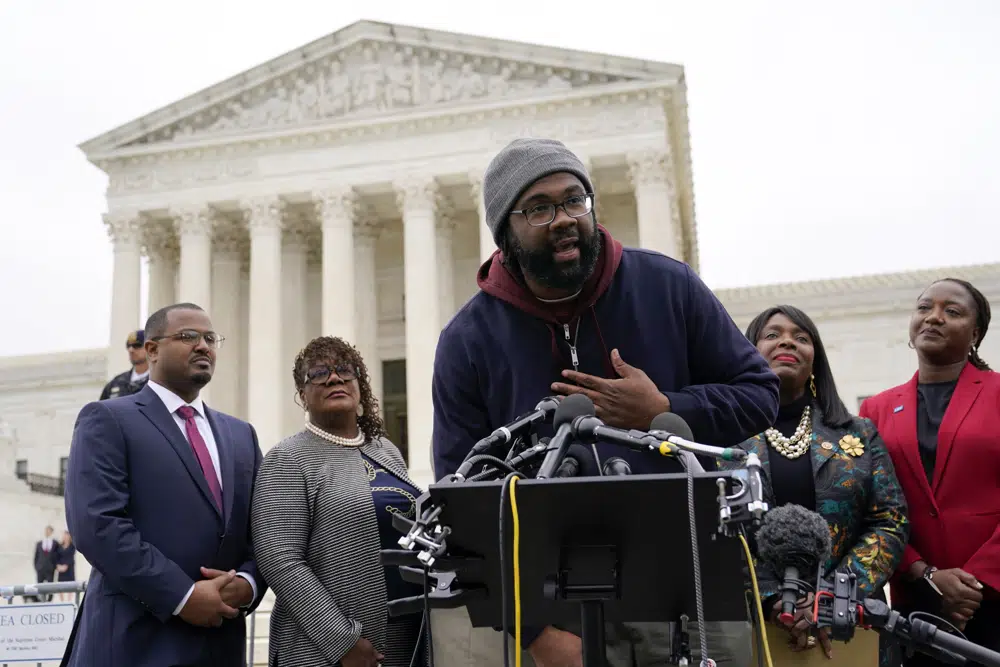
On Thursday, the United States Supreme Court ruled that Alabama must redraw the state’s congressional map to allow an additional Black majority district to account for the fact that the state is 27% Black. The Alabama House Democratic Caucus and the Alabama Legislative Black Caucus both applauded the ruling. Alabama House Minority Leader Anthony Daniels (D-Huntsville) said, “During a severely short and limited map-drawing process, our Caucus spoke at length about our view of the law and provided ways the state could craft at least two districts that reflect fair political opportunities for African American voters.” “We are therefore pleased that the Supreme Court affirmed the decision of the unanimous district court, which found the Alabama maps were discriminatory,” Daniels continued. “We stand ready to participate meaningfully with our colleagues to create a new map that fully complies with the law.” Rep. Terri Sewell wrote on Twitter, “Wow!!! The Supreme Court just upheld Section 2 of Voting Rights Act of 1965 and protected the voices of Black and minority voters. This is a historic victory not only for Black voters in Alabama, but for Democracy itself.” In a press release, Sewell said, “This is a historic victory, not only for Black voters in Alabama, but for Democracy itself. With this decision, the Supreme Court is saying loudly and clearly that the voices of minority voters matter and that fair representation must be upheld. I know that John Lewis and the Foot Soldiers of the Voting Rights Movement are smiling as they look down on us. Today, their sacrifice was rewarded. Our work is not over. We must continue the fight for fair representation by passing the John R. Lewis Voting Rights Advancement Act to restore the full protections of the Voting Rights Act of 1965.” State Senator Merika Coleman (D-Birmingham) is the Chair of the Alabama Legislative Black Caucus. “From the beginning of this case, we have strongly denounced racial gerrymandering and will continue our efforts to ensure that districts are drawn equitably and fairly,” said Sen. Coleman. “I applaud Chief Justice (John) Roberts for preserving Section 2 of the Voting Rights Act. This is a major victory for Black voters in Alabama, as well as the entire nation.” State Representative Napoleon Bracy, Jr. (D-Prichard) is the Vice Chair of the Alabama Black Legislative Caucus. “In a resounding victory for fair representation, the Supreme Court’s unexpected decision stands as a powerful testament to the importance of upholding the Voting Rights Act,” Rep. Bracy said. “By prohibiting racial gerrymandering in Alabama, the Court reaffirms the principle that every citizen’s voice deserves to be heard, regardless of their race. This ruling sends a clear message that political power should not be diluted through discriminatory practices, ensuring that the spirit of democracy remains strong and inclusive in Alabama.” In 2021, the Alabama state legislature produced new congressional maps which closely paralleled the previous 2012 redistricting with just one Black majority district. In a narrow 5-4 decision, the majority of the Court sided with the plaintiffs and affirmed that Section 2 of the Voting Rights Act requires the Alabama legislature to draw a second district where minority voters can elect a candidate of their choice. The decision will also have an impact across the South, as today’s decision clears the way for additional minority districts to be drawn in other states with challenged maps, like Georgia and Louisiana. “It is hard to imagine many more fundamental ‘prerequisites’ to voting than determining where to cast your ballot or who you are eligible to vote for,” Chief Justice John Roberts wrote. The 34-page decision in Milligan penned by Roberts recommits to the Voting Rights Act’s promise as the foundation for justice for all, not just some. Roberts was joined by Justices Sonia Sotomayor, Elena Kagan, Kentaji Brown Jackson, and Brett Kavanaugh. Jeff Loperfido is the Interim Chief Counsel for Voting Rights at the Southern Coalition for Social Justice. “This is a great day for democracy and for the voting rights of Black and Brown communities throughout the South who continue to be the targets of discriminatory laws that seek to silence their voices and stifle their growing political power,” said Loperfido. “The Court’s forceful repudiation of Alabama’s extreme and disingenuous ‘race-blind’ mapping theory is a testament to the important role the Voting Rights Act plays in rooting out discriminatory electoral practices.” The Legal Defense Fund (LDF), American Civil Liberties Union, ACLU of Alabama, Hogan Lovells LLP, and Wiggins, Childs, Pantazis, Fisher & Goldfarb brought the case in November 2021 on behalf of Evan Milligan, Khadidah Stone, Letetia Jackson, Shalela Dowdy, Greater Birmingham Ministries, and the Alabama State Conference of the NAACP. It was argued before the Court on Oct. 4, 2022. The case goes back to the three-judge panel of the Eleventh Circuit Court of Appeals in Atlanta that originally ruled against the State of Alabama. The Supreme Court had stayed its ruling last year at the request of Alabama Governor Kay Ivey, Alabama Attorney General Steve Marshall, and then-Secretary of State John Merrill. The three-judge panel will decide whether to order the Legislature to redraw the districts following the orders of the Court or order the state to adopt a zoning map drawn by the courts. Two alternative maps were presented to the Court by the plaintiffs. The easiest thing would be for the three judges to order the state to accept one of those maps. Whatever happens, Alabama’s Congressional maps will look substantially different than they are today by the end of the year. This will likely impact hundreds of thousands of Alabama voters. The major party primaries for the congressional districts will be on March 6. To connect with the author of this story or to comment, email brandonmreporter@gmail.com.
Former State Representative Will Dismukes convicted on theft charges
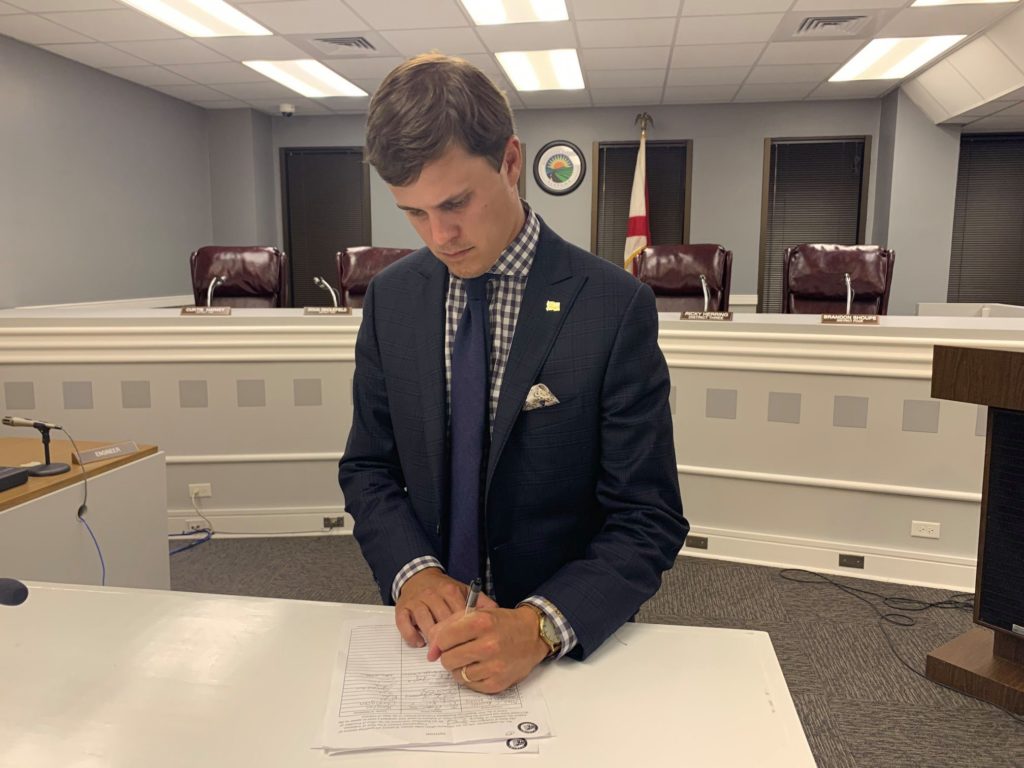
On Friday, a Montgomery County jury found former Alabama state Representative Will Dismukes guilty of first-degree theft of property charges. The jury found former Rep. Dismukes guilty of stealing from his former employer, Weiss Commercial Flooring. Dismukes was also found guilty of two aggravating factors, which could lead the first-time offender to spend time in prison when sentenced. “I am very pleased with the jury’s conviction in this case,” Montgomery DA Daryl Bailey told reporters. Dismukes thievery cost a local business thousands of dollars in stolen revenue. This is the first time in history that a Montgomery jury has found an aggravator in a theft case. Because of this, my office will be seeking significant prison time for Mr. Dismukes,” Bailey said. Dismukes, a Republican, represented Elmore and Autauga Counties in the Alabama House of Representatives from 2018 to 2022. Dismukes lost his bid for re-election in the 2022 Republican primary to Jerry Starnes. Dismukes broke away from Wiess Commercial Flooring and started his own flooring business. The accusations against Dismukes were leveled by his former employers. Dismukes was indicted by a Montgomery grand jury in June 2021. Dismukes was a pastor of a Prattville Church but resigned after he was criticized for attending a birthday celebration in Selma for Confederate General Nathan Bedford Forest while former Congressman John Lewis’s (D-Selma) body was lying-in-state in his native Selma. Forest, who became wealthy as a slave trader, headed the Ku Klux Klan following the Civil War. Dismukes was the Chaplain for his local Sons of Confederate Veterans chapter. Dismukes, although one of the youngest members of the Legislature at the time, once collapsed on the floor of the House during his tenure in the body. Dismukes was a 2020 Republican candidate for Congress in Alabama’s Second Congressional District but dropped out of the race and endorsed Jessica Taylor. He also endorsed John Merrill for U.S. Senate. Merrill dropped out of the Senate race when Jeff Sessions entered the 2020 GOP primary field, while Taylor finished third in the GOP primary for Congress. Prosecutors claimed that Dismukes stole thousands of dollars in building materials and tools from Weiss and cashed checks that should have gone to his then-employer. Dismukes testified in his own defense in his trial saying that he did not steal but rather said that he “double-dipped.” Montgomery Judge Brooke Reid will hold a sentencing hearing for Dismukes on May 4th, 2023. To connect with the author of this story or to comment, email brandonmreporter@gmail.com.
Wes Allen says that ERIC offices are empty

On Thursday, Alabama Secretary of State Wes Allen said that on a recent visit to the ERIC headquarters, he found no one there. On February 15, 2023, Allen made an unannounced visit to the published address of the headquarters of the Electronic Registration Information Center (ERIC) at 1201 Connecticut Ave NW Ste 600 in Washington, DC. Allen discovered that the location was actually the home of a virtual shared workspace and that no ERIC headquarters existed at the location. “I was in DC for a meeting of the National Association of Secretaries of States and since I was in town, I went to see the ERIC Headquarters,” Allen explained in a press release. “What I found was that there was no ERIC headquarters at that address. There were no employees. There were no servers. There was no ERIC presence of any kind. Instead, I found a virtual office that is rentable by the day. What it was missing was people, servers and any sign of the ERIC team.” ERIC has published the Connecticut Avenue address as its official address on its website. That information is either dated or factually inaccurate as the location is actually operated by Expansive, a company that offers virtual workspaces across the country and rents space by the day. “Before I took office, Alabama transmitted the personal information of millions of our citizens to this private organization for the past several years,” Allen continued. “That information is stored on a server somewhere, but we do not know where. There is no ERIC operation at the location they claim is their office. A lot of personal data and taxpayer money has been transferred to ERIC. Where is that data? Where are the employees? Where are the offices? Where are the computers?” Shortly after his inauguration last month, Allen informed ERIC that the state was withdrawing from participation. Allen made a promise to remove the state from the ERIC system during his campaign last year. Then-Secretary of State John H. Merrill defended ERIC. “In Alabama, ERIC is used to preserve a clean and accurate voter list and to contact eligible residents who are not registered voters,” Merrill stated. “Each month, we provide ERIC with a voters list and driver’s license data, and we receive information from ERIC for voter list maintenance in return. Monthly, our office receives a list of voter records that potentially need to be removed or inactivated based on deceased records from the Social Security Administration, potential duplicate voter records in Alabama, or voters that have potentially moved out of the state.” “Since joining the program in 2016, ERIC has identified more than 19,000 voter records of potentially deceased Alabama voters that died in this state or another ERIC member state,” Merrill continued. “98% of those voter records are no longer on the Alabama voter rolls. ERIC identified more than 222,000 voter records of potential cross-state movers from voter lists and driver’s license information obtained from other ERIC member states. 90% of those identified voter records are either no longer on the Alabama voter rolls or have been placed on a path to be removed in accordance with federal law. ERIC identified more than 24,000 voter records of potential duplicate registered voters in which an Alabama voter had duplicate records with potential inaccurate data. ERIC helped us match these voter records, and 95% of those duplicate records are no longer on the Alabama voter rolls.” Allen served in the Alabama House of Representatives from 2018 to 2022. He served as the Probate Judge of Pike County before his time in the legislature. Allen said that election security has always been a priority to him, both as the senior elections official in Pike County and as a legislator. Since taking office, he has been meeting with state agencies to establish methods for ensuring that Alabama’s voter lists are clean and accurate. Allen was elected as Alabama’s 54th Secretary of State in November and was inaugurated in January. Withdrawing Alabama from ERIC was Allen’s first act as Secretary of State. The official withdrawal process takes 90 days, meaning Alabama will be officially withdrawn by mid-April. Allen has announced that he has ceased transmitting any data from Alabama to ERIC. To connect with the author of this story or to comment, email brandonmreporter@gmail.com.
Wes Allen announces withdrawal from voter registration group

Alabama’s new secretary of state, Wes Allen, announced the state’s withdrawal Tuesday from a 32-state voter registration partnership, a data-sharing effort that was designed to maintain accurate voter rolls but has sometimes become the target of conservative ire and conspiracy theories. A day after being sworn in, Allen sent a letter to the Electronic Registration Information Center, a non-profit linking 32 states and the District of Columbia, saying the state will no longer participate in the sharing of voter registration data. “I made a promise to the people of Alabama that ending our state’s relationship with the ERIC organization would be my first official act as Secretary of State,” Allen said in a statement. The letter said that Alabama would immediately cease transmitting data. The Republican, who had pledged during his campaign to withdraw from ERIC, cited privacy concerns Tuesday for the decision. “Providing the private information of Alabama citizens, including underage minors, to an out-of-state organization is troubling to me and to people that I heard from as I traveled the state for the last 20 months,” Allen said. The database was created as a tool to maintain accurate voter rolls and combat fraud by allowing states to know when someone moves, dies or registers elsewhere, but has sometimes been targeted by critics. In November, former Secretary of State John Merrill criticized Allen’s intent to withdraw. He said then that ERIC provides information that Alabama couldn’t otherwise access — such as other states’ voter registration and motorist driver’s license records — and has been a crucial tool for maintaining voting rolls. “I trust he has evaluated this situation and is making the decision based on what he believes to be in the best interest of the state of Alabama,” Merrill said on Tuesday. The issue of participation in ERIC was raised in at least one other state. The Republican candidate for Arizona secretary of state said during the campaign that he would withdraw from ERIC if elected, but he lost. Louisiana withdrew earlier this year. However, another Republican campaigned on joining the partnership. Georgia Secretary of State Brad Raffensperger, also a Republican, proudly noted in stump speeches that the state had joined ERIC. Raffensperger said in 2019 that it would be a tremendous step forward for the integrity of Georgia’s voter rolls. According to the organization, the states that currently participate in ERIC are Alabama, Alaska, Arizona, Colorado, Connecticut, Delaware, Florida, Georgia, Illinois, Iowa, Kentucky, Maine, Maryland, Massachusetts, Michigan, Minnesota, Missouri, Nevada, New Jersey, New Mexico, Ohio, Oregon, Pennsylvania, Rhode Island, South Carolina, Texas, Utah, Vermont, Virginia, Washington, West Virginia, and Wisconsin. The District of Columbia is also a member. Republished with the permission of The Associated Press.
County commission chair Albert Turner Jr. indicted on voter fraud charge

The son of Alabama civil rights activists has been indicted on charges of voter fraud, but he called the accusations nothing more than “political theatre.” Perry County Commission Chairman Albert Turner Jr. has been charged with voting more than once and violating Alabama’s law that prohibits the fraudulent collection and filling of other people’s absentee ballots. The charges were announced Wednesday by Alabama Secretary of State John Merrill and District Attorney Michael Jackson. Jackson said Turner is accused of running multiple ballots through a voting machine during the May 2022 Democratic primary election. He is also accused of breaking state law as regards using absentee ballots, Jackson said. Turner was seen with a “stack” of absentee ballot material at the post office, he said. “He was stuffing the machine with the ballots that he had already filled out for the folks he was supporting. He did that for a good little while, and he had some folks distracting the poll watchers,” Jackson said. Turner told the Associated Press that he did know about the charges, but that he did nothing wrong. “I am not concerned about any charge he has announced, and I will not waste any energy on political theatre. It is mighty funny that Little Mike waited until he was leaving office to make his charge because he knows he can’t prove his case,” Turner wrote in a text message. Turner’s cousin, Robert H. Turner Jr., defeated Jackson, in the Democratic primary. He takes office later this month. Jackson said the case is being handled by the attorney general’s office to avoid a conflict. Turner is the son of civil rights activists Albert Turner Sr. and Evelyn H. Turner. Albert Turner Sr. was Alabama field secretary for the Southern Christian Leadership Conference in 1965 when he helped lead the aborted Selma-to-Montgomery march that became known as “Bloody Sunday” when marchers were beaten by state troopers. He led the mule wagon that carried the body of the Rev. Martin Luther King Jr. at his funeral. The elder Turner died in 2000. Republished with the permission of The Associated Press.
Secretary of State John Merrill to join Waggoner Engineering
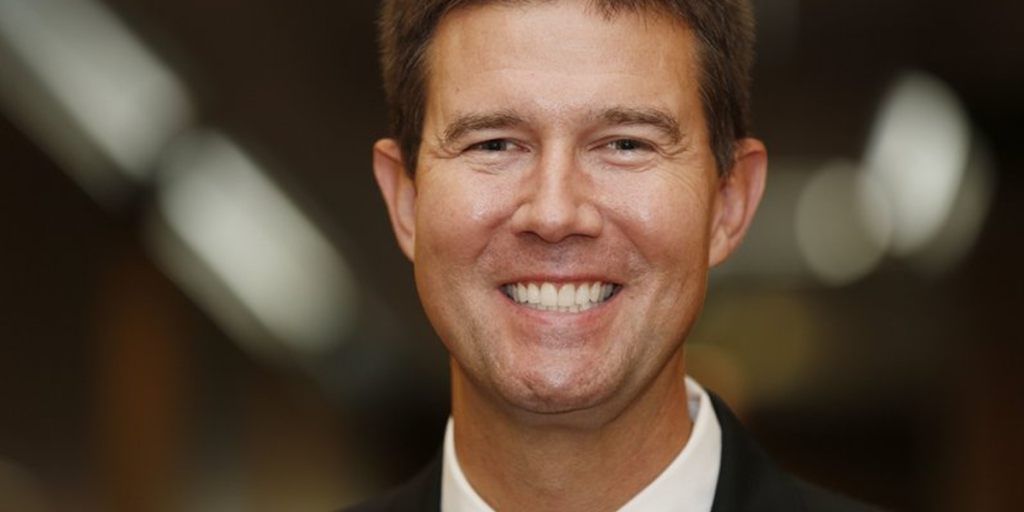
Alabama Secretary of State John Merrill will be joining Waggoner Engineering as the Director of Public Policy and Strategic Markets for Alabama. Waggoner has its headquarters in Jackson, Mississippi, and more than ten office locations across six states and Washington, D.C. Merrill’s Executive Assistant and Scheduler, Karen Guthrie, will also join the Waggoner team as the Administrator of Alabama and Florida. “I want to take this time to thank the people of Alabama for giving me the opportunity to serve as Alabama’s 53rd Secretary of State for the last eight years. As the longest-serving Republican Secretary of State in Alabama history, it has been my honor to preside over the safest and most secure elections in the United States. Alabama is recognized as the gold standard in election administration by Concerned Women for Good Government, The Heritage Foundation, and the University of Southern California,” said Secretary Merrill. “Since I have been your Secretary, we have registered more than 2.2 million voters and now have a state record of 3.7 million voters. We have broken every record in voter registration and voter participation in Alabama. We have made it easier to vote and harder to cheat in Alabama!” In 2021, Secretary Merrill started the Voter Fraud Reform Task Force. The task force consisted of 15 members, including the Secretary of State as the Chairman. The task force’s goal was to examine voter fraud in Alabama and assess the penalties for voter fraud violations. “In the area of business services, we have reduced the wait time from a seven to nine months delay to a 24-hour turnaround for the last six and one-half years, and we have done so with 25% fewer employees (49 down to 36) because we are no longer moving at the speed of government, but at the speed of business. “Refusing an appropriation from the General Fund and introducing other efficiencies, we have saved you millions of dollars over the last eight years. We are excited to leave this time of public service and enter the private sector once again. Thank you for your support and encouragement as I have seen you during my visits in your counties every year over the last ten years, and I look forward to continuing to see you in my new role.” Merrill is a graduate of Cleburne County High School and The University of Alabama. After college, Merrill worked in several business roles, including as Director of Business Development for the Chamber of Commerce of West Alabama in 1993-94 and the Director of Community Relations and Community Education for the Tuscaloosa County Board of Education from 1994-2010. In 2010, he served as the State House Rep. for District 62. In 2014, John was elected as Alabama’s Secretary of State. He and his wife Cindy have two grown children, Brooks and Allie Grace.
Personnel Update: David Brewer hired to work for Baldwin County legislative delegation

On Tuesday, the Baldwin County Commission approved an agenda item to hire David Brewer for a part-time position working for the Baldwin County Legislative delegation. Brewer is presently the Deputy Secretary of State & Chief of Staff for Secretary of State John Merrill who is finishing his last days as Secretary of State as he was term-limited from running for a third term. Former State Rep. Wes Allen is the incoming Secretary of State and has already announced his senior staff hires. Clay Helms will serve as Allen’s chief of staff. Brewer will advise the Baldwin County legislative delegation on matters of policy. Brewer is well versed in legislative affairs and Alabama election law from his time at the Secretary of State’s office. He is also well-versed in Baldwin County issues from his time as the Baldwin County Administrator. Brewer is a native of Alaska. He came to the state of Alabama to study at the University of Alabama. He joined Baldwin County in 1996 as an intern. He joined the county full-time in 1997 and became the county administrator in 2010. The commission voted not to renew his contract in 2014. To connect with the author of this story, or to comment, email brandonmreporter@gmail.com.
State releases Alabama’s post-election audit pilot program results

On Tuesday, Alabama Secretary of State John Merrill announced the completion of the post-election audit pilot program. Sec. Merrill announced in a statement that the results of the audit pilot program confirm the accuracy of Alabama’s elections. Merrill expressed his thanks to all involved in the successful completion of this post-election audit. The Alabama State Legislature authorized a post-election audit in just three polling places in three Alabama counties. Alabama Act 2021-446 authorized a post-election pilot program to be conducted in three counties after the 2022 General Election in which one statewide office and one county office were audited for a single polling place. Dallas County, Houston County, and Marshall County were selected to conduct the audit. The post-election audit was conducted by the Probate Judge, Sheriff, and appointed poll workers in each county. Houston County Probate Judge Patrick Davenport said, “It will only audit one precinct, and (in) that precinct, it will only audit one state race and one county race. It’s a test for the audit process. I think it’s something that the legislature thought was important. What it will actually do…the nuts and bolts of it would be the Circuit Court would issue an order authorizing the Sheriff and I to open those sealed ballot boxes. We’ll set up in this chamber, and I’ll probably have ten teams of two people with a supervisor observing each one of them, and each of those teams will go down the ballot and record the tabulated votes from those ballots on a tally sheet. We’ll compare that to the DS200 (ballot scanner) results we procure on election night.” Many conservatives have expressed concerns about Alabama’s election counting processes after the 2020 election, in which former President Donald Trump alleged that votes in certain swing states may have been fraudulent. One area of concern has been the vote counting machines. The manual audit of the polling places audited showed no significant discrepancy between the paper ballots and the machine counts. Some states have conducted full state audits following the 2020 election, but no state has found sufficient evidence to decertify their presidential vote. Merrill’s tenure as Secretary of State ends in January. Former State Rep. Wes Allen is the Secretary of State-elect. Allen is a former Probate Judge in Pike County who sponsored several bills while in the legislature to improve the security of Alabama elections. To connect with the author of this story, or to comment, email brandonmreporter@gmail.com.
Focus on America claims that Alabama voting systems can connect to the internet
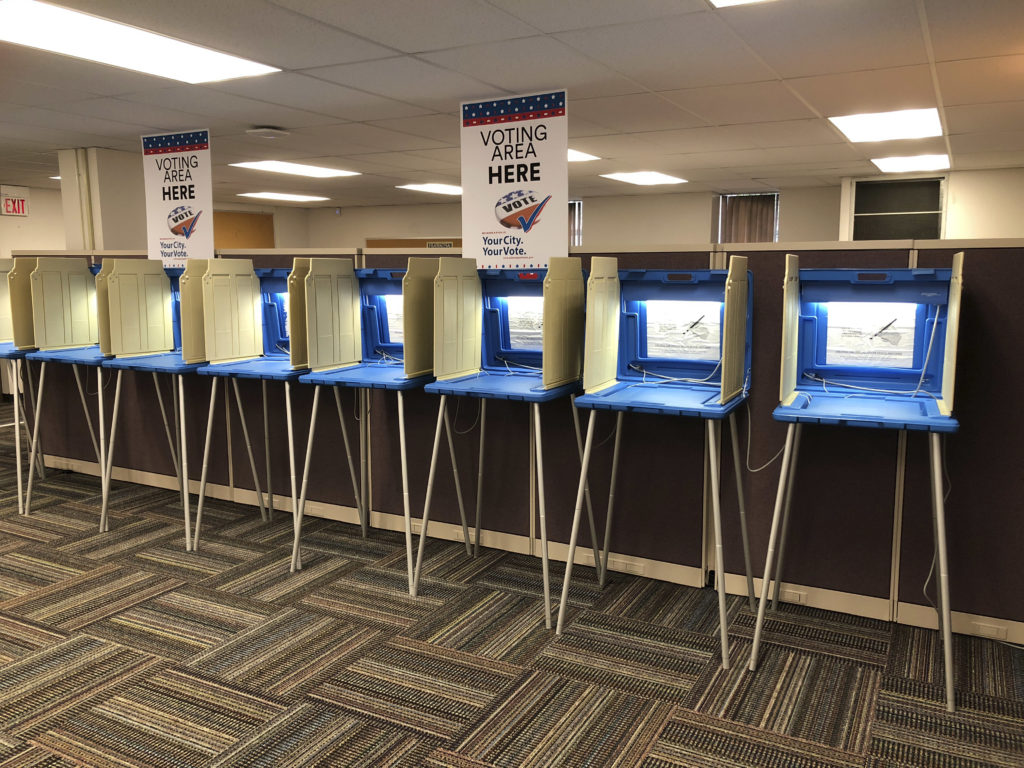
On Thursday, a conservative action group that is concerned with election integrity and supports informing voters, Focus on America announced in a press release that they have supplemented the record in their case challenging the use of voting machines in Alabama elections. Focus on America said in the release that they have forwarded new evidence to the Alabama Supreme Court and the Montgomery Trial Court. The new evidence is from a statement that defendant Secretary of State John Merrill made in a meeting of the Tennessee Valley Republicans that the plaintiffs claim contradicts prior testimony of defendants and defense witnesses in this case. The plaintiffs claim that this new evidence shows that Alabama’s election voting system is wide open to the internet in over sixty locations. Secretary Merrill disputed Focus on America’s claim in a phone interview with Alabama Today. Rebecca Rogers, with Focus on America, is a plaintiff in Hanes v. Merrill that presently plaintiffs have appealed to the Alabama Supreme Court. Rogers stated she asked Sec. Merrill specifically about the so-called “hardened” laptops provided to each probate judge. Rogers referred Merrill to an AL.com article that quotes both Merrill and co-Defendant Bill English, Lee County Probate Judge and Chair of the Alabama Electronic Voting Committee. “The hacker, if he gets into our second computer and changes it, we’ve still got the original data from the precincts on computer A,” English said. “The security is that nobody can get to computer A from the Internet.” Rogers claimed that in her question, she referenced the Secretary of State Office’s own purchase order for these so-called “hardened” laptops that proves, among other things, that the laptops are not hardened but, to the contrary, were ordered with WiFi and Bluetooth. “Everything in this case has already been adjudicated,” Merrill told Alabama Today. “That case is over.” Merrill said that the information that is in those laptops is for “election night reporting only so that the media can have numbers to report. Those are unofficial results.” “While Merrill and the probate judges may understand that this computer is used for only one purpose, hackers don’t really care and connecting to the internet at all leaves widespread vulnerabilities in our election security and voter rights,” stated Rogers. “John Merrill misrepresented the truth before the Alabama Supreme Court with our electronic voting machine lawsuit.” Merrill denied misrepresenting anything to the court. “Those people have gotten so much information they can’t understand it,” Merrill said. “They have no credibility.” “In May of this year, John Merrill said that the “hardened” stand-alone computers used in the election ‘cannot be connected to the internet.’” Melissa Isaak, the plaintiff’s attorney, said. “This was shown in court to be false as Wifi and Bluetooth connectivity was specifically requested in Merrill’s own purchase orders.” Another attorney for the plaintiffs, Phillip Jauregui, stated, “This admission is outrageous. For months, the defendants have testified that the election laptops are not open to the internet. But now, when exposed by their own purchase order, they are forced to admit that the opposite is true. The legal problem is that they only did so after the record and appeal had been sent to the Alabama Supreme Court. We hope and pray the Alabama Supreme Court will accept this new evidence and rule for the plaintiffs in our main case. Our janky, uncertified, and insecure systems must be fixed.” Alabama Today asked Merrill what the status of the case is. “Hugh is dead,” Merrill responded, referring to the recent passing of the Secretary of State’s general counsel. “Normally, I would just ask him.” The general counsel for the Alabama Secretary of State’s Office Hugh Evans III passed away on November 17. Evans was undefeated in numerous different court challenges of election law while working with Merrill. Merrill reiterated his view that the Alabama election results cannot be hacked and that this case has no merit. To connect with the author of this story, or to comment, email brandonmreporter@gmail.com.
Wes Allen announces state’s withdrawal from ERIC system

Secretary of State-Elect Wes Allen announced on Wednesday that he has mailed a letter to the Electronic Registration Information Center (ERIC) to inform the corporation of Alabama’s intent to withdraw from participation in their system. “I made a promise that I would withdraw Alabama from ERIC, and I am keeping that promise,” Allen said in a statement. “I have informed them, via certified letter, that upon my inauguration on January 16, 2023, Alabama will immediately and permanently cease to transmit any information regarding any citizen in the State of Alabama to their organization and that we will no longer participate in any aspect of the ERIC program.” The ERIC system is a nonprofit organization that collects information from 32 member states, including the District of Columbia. ERIC is a database with names, addresses, and partial social security numbers of hundreds of thousands of private citizens. ERIC is used to clean up the voter rolls. “I have heard repeatedly as I traveled through the state for the last year and a half that people want us out of ERIC,” Allen continued. “They don’t want their personal information or the personal information of their children to be sent to this out-of-state group. I promised I would end our participation, and that is what I am taking these steps to do.” Allen mailed identical letters to ERIC Executive Director Shane Hamlin, ERIC Chair Mandi Grandjean, and Systems Data Specialist Sarah Whitt, informing them of his intent to cease cooperation with the group. Allen informed them that he will mail another letter upon his inauguration on January 16, 2023, on official government letterhead. ERIC is costing the state of Alabama just $25,000 a year in membership fees to ERIC. Allen has expressed concerns about the frequent transfers of sensitive data to the ERIC databases. Allen’s withdrawal will put an end to those payments and data transfers. It is unclear what system the state of Alabama will put in place to maintain the integrity of its voter rolls without ERIC. Allen was elected as Secretary of State last week and has already begun the transition to a new administration in the Secretary of State’s office. Current Secretary of State John Merrill was term-limited from running again. Merrill has defended the use of the ERIC system. “It is important to note that currently, ERIC is the only organization capable of providing the necessary data for proper voter list maintenance,” Merrill stated. “In Alabama, ERIC is used to preserve a clean and accurate voter list and to contact eligible residents who are not registered voters. Each month, we provide ERIC with a voters list and driver’s license data, and we receive information from ERIC for voter list maintenance in return. Monthly, our office receives a list of voter records that potentially need to be removed or inactivated based on deceased records from the Social Security Administration, potential duplicate voter records in Alabama, or voters that have potentially moved out of the state.” Allen is a former Pike County judge, and he has served one term in the Alabama House of Representatives representing Pike and Dale Counties. To connect with the author of this story, or to comment, email brandonmreporter@gmail.com.
Steve Flowers: Jo Bonner inaugurated as president of University of South Alabama

Jo Bonner was officially sworn in as the fourth president of the University of South Alabama on September 23, 2022. The University of South Alabama is the crown jewel and flagship of the Alabama Gulf Coast. It is a sprawling, manicured, beautiful, and functional modern campus. It is currently the third-largest university in the state. Under the leadership of President Jo Bonner, it will grow and prosper to where within the next decade, it will be thought of as one of our premier “Big Three” major flagship universities along with the University of Alabama and Auburn University. Its location as the only major university in the populous metropolitan Mobile/Baldwin growth area of our state, coupled with having the University of South Alabama Medical School and Center on the campus, portends for exponential growth and prosperity for the University of South Alabama. The prosperity of USA is assured by the selection of Josiah R. Bonner, Jr. as President. Over the next decade, he will be thought of in the same terms and same breath as the legendary founding President of USA, Frederick Whiddon, who oversaw the first 35 years of USA. There has never been a more perfect selection to be the leader of a major university in our state than the appointment of Jo Bonner as President of USA. His knowledge of the business, civic, and social community of the Mobile/Baldwin area is unique. Through his decade of service as their congressman, he is an integral part of the Mobile community. He left Congress with the highest regard and admiration. He was so well respected by his congressional colleagues that he was Chairman of the U.S. House Ethics Committee. You can be assured that there is no university president, lobbyist, or board of trustee member who can walk the halls of Congress and bring home the bacon from the limitless federal trough than Josiah Bonner, Jr. You can also rest assured that there is no university president in the state that has the clout and reverence on Goat Hill in Montgomery than Josiah Bonner, Jr. This is a very unique and perfect blend for prosperity and growth for USA. It is well known in political circles that Jo Bonner is Governor Kay Ivey’s closest confidante. He served as her Chief of Staff for four years. Their families go back as friends and relatives in Wilcox County for generations. Jo Bonner’s father, the first Josiah Bonner, was Probate Judge of Wilcox County. Jo is the baby of the family, a good 15 years younger than his brother, Jim, who grew up as friends and in school together with Governor Kay Ivey. Jo’s sister, Judy, and Senator Jeff Sessions were in school together in grades K-12, then Jo came much later. The aforementioned sister, Judy Bonner, was President of the University of Alabama. Never before in Alabama’s history has there been two siblings being presidents of major universities in Alabama. Jo Bonner actually became President of USA in January. The official inaugural event was on September 23. It was a magnificent program. Governor Ivey gave the keynote address. She beamed with pride as she talked about her “little brother” from Wilcox County. Dr. Jack Hawkins, the 30-year Chancellor of the Troy University System, gave a brilliant address. He spoke for all of the university presidents in the state as the Dean of University Presidents. Jo Bonner’s family was recognized, beginning with his sister, President Judy Bonner. His wife, Janee, along with his two outstanding children, son Robin, and daughter Lee, were in attendance. The Inaugural Event was held in the magnificent Mitchell Center. The Mitchell family has been a major benefactor to USA. Mrs. Arlene Mitchell is Chairman of the Board of Trustees. Another Board of Trustees member is Dr. Steve Stokes, a radiology oncologist from Dothan. He and his wife Angela have been generous donors to USA, also. Stokes Hall is the newest dorm on campus. It was truly fitting that Jo Bonner had a throng of political dignitaries attend his Inaugural Event. It was like a political gathering of Who’s Who in Alabama politics visiting on the floor of the Mitchell Center prior to Jo’s inauguration. The list of attendees is too long to enumerate. However, in addition to Governor Ivey was Mac McCutchen, John McMillan, John Merrill, Bobby Singleton, Vivian Figures, Young Boozer, Bill Poole, Twinkle Cavanaugh, Sandy Stimpson, Will and Liz Filmore, Cathy Randall, Gordon and Ellen Stone, Jim Purcell, Victor Gaston, Chip Brown, Margie Wilcox, Alan Baker, and Judge Sarah Stewart, just to name a few. They were all there to honor a man who is revered and respected in Alabama – Josiah “Jo” Bonner. Steve Flowers is Alabama’s leading political columnist. His weekly column is read in over 60 Alabama newspapers. Steve served 16 years in the state legislature. Steve may be reached at www.steveflowers.us.


